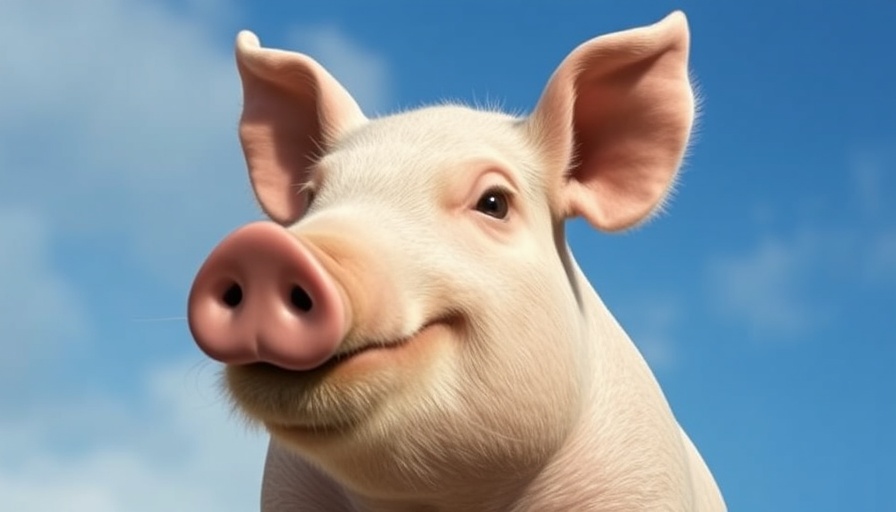
James Cromwell’s Transformative Journey: From Filming Babe to Veganism
James Cromwell, renowned for his role as the farmer Hoggett in the beloved movie "Babe," shared an enlightening experience from the film set that radically transformed his lifestyle. During a lunch break on only the second day of filming, Cromwell was confronted with the stark reality of his profession; as he looked down at a table filled with animals he had just worked alongside, he made a pivotal decision: he would become vegan.
The Emotional Connection: Filmmaking Meets Advocacy
This moment of realization highlighted an overarching theme of the movie, which centers around compassion and the connection between humans and animals. Cromwell's sudden shift wasn’t just a personal choice; it was a leap in advocacy. The film itself, based on the book "The Sheep-Pig" by Dick King-Smith, doesn't just tell the story of a pig; it implores viewers to consider the ethics of animal husbandry.
Cromwell’s Reflections on Identity and Representation
The actor shared insights into his journey, revealing that as he prepared for the role, he battled against expectations of accent and appearance imposed by the movie's studio. Notably, Cromwell recalls a contentious moment where he fought to keep his iconic sideburns. His defiance in that small regard symbolized a broader fight for authenticity on screen, an emerging theme in Hollywood where actors increasingly challenge traditional casting norms.
Behind the Scenes: The Magic of Filmmaking
The making of "Babe" was far more than just a cinematic endeavor; it also involved innovative practices in animal training. Cromwell described the fascinating behind-the-scenes work, including the use of animatronic sheep blended with real ones. This immersion created a genuine interaction between humans and animals, further enhancing the film's message about respect and understanding in relationships.
Your Journey: The Significance of Veganism Today
Cromwell's switch to a vegan lifestyle resonates strongly in today's climate-conscious world. As digital nomads travel and explore various cultures, more are likely to become aware of the ecological impacts of dietary choices. Transitioning to a plant-based lifestyle can minimize one's carbon footprint and contribute positively to sustainability. Understanding the food we consume—both its origins and its effects on the environment—is crucial for those seeking mindful living and ethical consumption.
Future Perspectives: The Role of Advocacy in Modern Filmmaking
As we look to the future, films like "Babe" could lead the charge in advocating for animal rights and environmental responsibility. Cromwell’s journey exemplifies how art can inspire activism and provoke thought, challenging audiences to rethink their choices. This movement toward awareness and advocacy in film aligns with broader societal shifts toward sustainability in food production and consumption.
Concluding Thoughts: The Power of Storytelling
James Cromwell's reflections remind us of the transformative power of storytelling in cinema. "Babe" is not just a film about a talking pig; it's a cultural touchstone that intertwines the importance of compassion, ethical choices, and the impacts of our decisions on the world around us. As you continue your journey as a global citizen, consider how your choices—particularly those related to food—affect the planet and the animals we share it with.
To dive deeper into the green spaces left by such impactful films, consider adopting changes in your lifestyle, whether through veganism or other sustainable practices. Each small step contributes to a larger movement toward a healthier planet.
 Add Row
Add Row  Add
Add 




Write A Comment